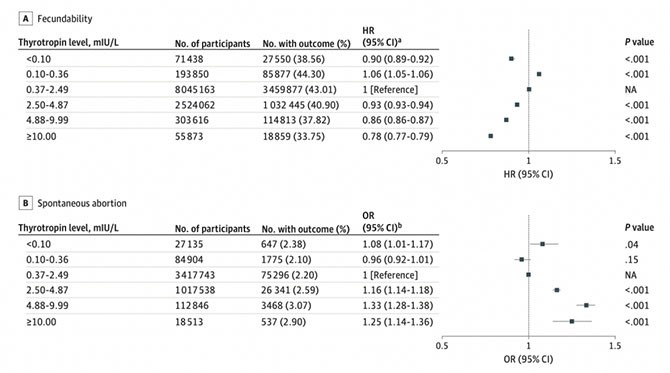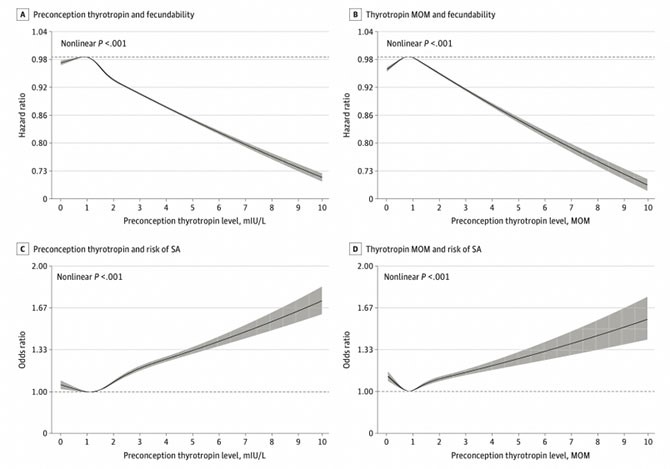

On August 31, 2022, Guan Haixia, Chief Physician of the Endocrinology Department of our hospital, Yang Ying, Associate Researcher and Ma Xu, Researcher from the Institute of Science and Technology of the National Health Commission jointly published an original paper entitled Association of Preconception Thyrotropin Levels With Fecundability and Risk of Spontaneous Abortion in China in JAMA Network Open.

The study was conducted by the same team after a report was published in JAMA Network Open in April 2021 revealing the association between the level of thyroid-stimulating hormone (TSH, the most sensitive indicator to reflect human body thyroid function) within half a year before pregnancy and four adverse pregnancy outcomes (premature birth, small for gestational age, birth defect and perinatal death). The research team once again showed in the form of a research paper the significant association between the TSH level within one year before pregnancy and the decreased fertility and increased risk of spontaneous abortion of women of childbearing age. The big data analysis based on more than 12 million women preparing for pregnancy (20-49 years old) allows us to more clearly understand the negative effect of abnormal thyroid function during the pregnancy preparation period on reproductive health. It supports to move forward the thyroid function screening time of the women who plan for pregnancy to prior pregnancy, in order to timely find abnormal thyroid function and take reasonable and appropriate measures to make thyroid function normal.

Figure 1 Comparison of fertility and risk of abortion between groups with different preconception serum TSH (adjusted odds ratio)

Figure 2 Dose-response relationship between serum TSH level during one year before pregnancy and fertility and risk of abortion
In the special comments provided by the journal for the study, Professor Erik K. Alexander, Director of the Thyroid Center of the Brigham and Women's Hospital of Harvard University and Chairman of the American Thyroid Association Guidelines for the Diagnosis and Treatment of Thyroid Diseases during Pregnancy, spoke highly of the study.
The main corresponding author of this study is Professor Guan Haixia from the Endocrinology Department, and our hospital is the institution of the first corresponding author. The endocrinology team will continue to cooperate with the Institute of Science and Technology of the National Health Commission to explore more in the management of endocrine diseases during the preparation and pregnancy period.